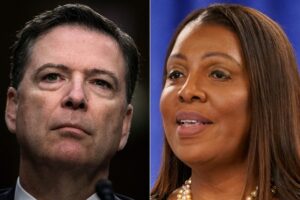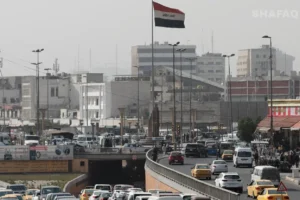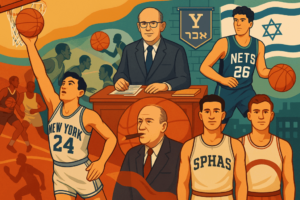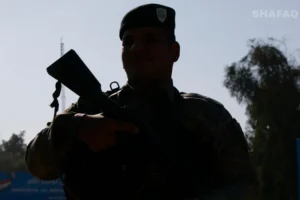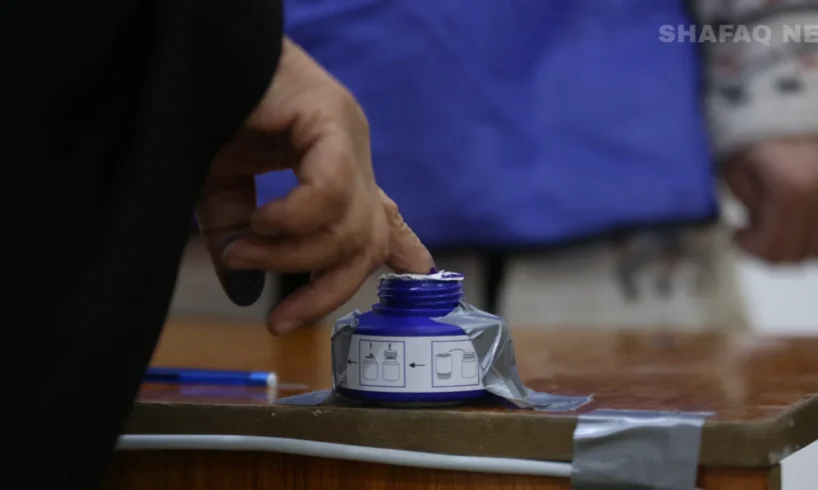
Shafaq News
Iraq’s
political landscape is undergoing a deep restructuring following the recent
elections, as major components move to consolidate their positions ahead of
government formation. After the Shiite Coordination Framework reaffirmed its
internal hierarchy and Sunni forces surprised observers by forming the broad
National Political Council, attention has shifted sharply toward the Kurdish
arena — now the most divided of the three blocs.
Amid these
shifts, a central question is gaining urgency in Erbil and al-Sulaymaniyah: Can
the Kurds revive a unified negotiating structure — a modern equivalent of the
historic Kurdistan Alliance — or will internal fractures leave them sidelined
as other components shape the next government?
Read more: Iraq’s new parliament: No bloc can impose, none can be ignored
Kurds in
Waiting Mode
According to
Kurdistan Democratic Party (KDP) figure Wafaa Mohammed Karim, the emergence of
the “largest bloc” inside the Shiite Coordination Framework does not mean an
agreement has been reached on the next prime minister.
“The
premiership remains unresolved,” he told Shafaq News, noting that Sunnis
themselves have yet to settle on a consensus candidate for parliament speaker —
a process requiring wide cross-component agreement.
Karim
acknowledged that “the Kurdish house, unfortunately, is still not united,” but
believes that once the Shiite nominee for premier is finalized, Kurdish parties
will be compelled to move quickly. “Even if Kurds go to parliament with two
candidates for the presidency, one will be chosen. The obstacle is not the
presidency itself.”
Karim
stressed that the KDP — the leading Kurdish list nationwide with more than one
million votes — is not opposed to supporting a Patriotic Union of Kurdistan
(PUK) nominee for president if the candidate restores dignity to an office that
has “lost much of its stature” since the era of the late Jalal Talabani.
He added
that the KDP’s priorities lie not in positions but in delivering on key
national files: Article 140, the oil and gas law, the federal budget, and
amendments to the election law. If Kurds unite around these demands, he said,
“the KDP is ready to make major concessions.”
Necessary
Unity and Troubling Reality
On the other
side of the political divide, PUK official Mahmoud Khoshnaw described the
situation as “far from enviable,” especially compared to the consolidated
Shiite front and the newly united Sunni camp.
Read more: Sunni forces defy expectations with new National Political Council
“Kurdish
parties must operate under one working paper,” he told Shafaq News, “whether
represented in Baghdad or not. A unified vision toward federal governance
strengthens both Iraq’s stability and that of Kurdistan.”
Khoshnaw
warned that continuing the rivalry between the KDP and PUK would have severe
consequences: “Anyone who believes they can move alone is mistaken. Previous
experiences showed that Kurdish influence in Baghdad declined because some
forces bypassed or undermined joint agreements.”
He urged
Kurdish parties to move beyond “electoral euphoria” and abandon political
arm-twisting inside Kurdistan. “No party’s victory should come at the expense
of state stability,” he said. “Despite competition, we still believe in unified
action and hope all Kurdish forces can reach a shared formula that serves the
public good.”
Power Gap
Exposed
Despite
winning 56 parliamentary seats, Kurdish parties enter Baghdad without a unified
negotiating umbrella.
According to
Kurdistan Islamic Union official Mustafa Abdullah, Baghdad today witnesses
clear cohesion among Shiites and Sunnis, while Kurds lack any effective
coalition representing their voters at the federal level.
Abdullah
told Shafaq News that forming a Kurdish negotiating bloc is now a “pressing
necessity,” but remains blocked by persistent KDP–PUK disputes — which he
described as the main obstacle to Kurdish unification.
He pointed
out that more than a year has passed since the Kurdistan Region’s parliamentary
elections without a new government — a “precise indicator of the political gap”
between the two dominant parties.
“Kurdish
parties have represented their own organizations more than their citizens,” he
said. “The consequence has been a tangible decline in Kurdish rights inside
Baghdad.”
He added
that smaller Kurdish parties have not presented credible initiatives for a
unified front, leaving the scene “hostage to bilateral rivalry.”
Read more: The Kurdish spine of Iraq’s elections: Unity tested by division
Key
Entitlements Threatened
Kurdistan
Socialist Party spokesman Farhad Tawfiq said his party called — even before the
elections — for a broad Kurdistan Alliance to unify political forces and
prevent the dispersion of Kurdish votes.
In an
interview with Shafaq News, Tawfiq warned that the current stage requires
“greater unity than before the elections,” and that strong alliances
confronting the Kurdish component pose a direct threat to its entitlements.
He described
a growing sense of anxiety among Kurds: “Positions traditionally belonging to
Kurds could also be at risk if fragmentation continues.”
Tawfiq
argued the coming phase demands a “single Kurdish line and team spirit,” with
internal disputes contained inside the Region rather than exported to Baghdad.
He urged political forces to adopt a national Kurdish initiative that includes
opposition parties under one umbrella.
What Would a
Kurdish Framework Achieve?
According to
IHEC’s final results, Shiite-led lists secured 187 seats, while Sunni forces
won 77, and Kurdish parties obtained 56 seats.
Within the
Kurdish camp, the KDP emerged as the dominant force with 28 seats — in some
tallies reduced to 26 due to district variations — while the PUK captured 15
seats. The remaining Kurdish seats went to New Generation (Al-Jeel Al-Jadeed),
the Kurdistan Islamic Union, the Kurdistan Justice Group (Komal), and the
National Contract Movement.
These
figures show that while the Kurds remain Iraq’s third-largest parliamentary
bloc, they lack the political cohesion displayed by the Shiite and Sunni
fronts.
If Kurdish
forces managed to form an umbrella, they would collectively command 56 seats —
possibly more when allied quota MPs are factored in — giving them substantial
bargaining power. A unified Kurdish framework would allow them to protect the
presidency from internal rivalry and secure binding guarantees on core issues
such as oil, gas, the federal budget, and Article 140. It would also enable the
Kurds to shape negotiations over the next prime minister, ensuring that no
Shiite–Sunni agreement is concluded at their expense.
Such
cohesion would restore their long-standing role as Iraq’s political
“kingmakers,” placing them once again at the center of federal decision-making.
But without unity, these entitlements risk slipping into wider cross-component
deals that could bypass Kurdish priorities altogether.
The window
is narrowing, and the coming weeks will determine whether the Kurds return to
the center of Iraq’s political balance, or remain observers of a process moving
rapidly around them.
Read more: Iraq’s budget: political fiscal gaps threaten national stability in 2025
Written and
edited by Shafaq News staff.


